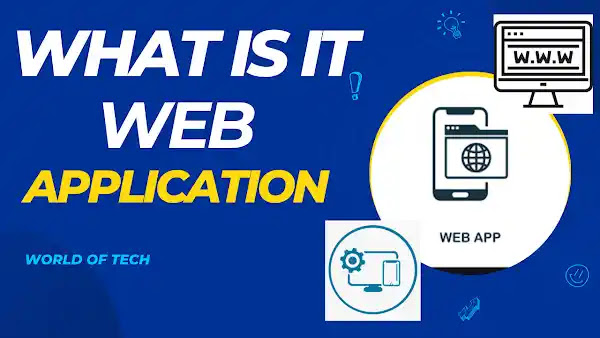Exploring the World of Web Apps
Web apps, also known as web applications, have revolutionized the way we interact with software.
These applications run on web browsers, eliminating the need for installation and allowing users to access them from any device with an internet connection.
With the use of HTML, CSS, and JavaScript, web apps offer dynamic and interactive user interfaces, seamless communication with servers, and a wide range of functionalities.Web apps run in browsers
The cross-platform compatibility of web apps enables users to access them on various devices, regardless of the operating system.
From desktop computers to smartphones and tablets, web apps provide convenience and accessibility.
They serve diverse purposes, such as online shopping, social networking, content management, and project management.
Types of web application
There are several types of web applications, each serving different purposes and catering to specific needs.
Some common types of web applications include:
- E-commerce Web Applications: These applications enable online shopping and transactions, allowing users to browse products, add them to a shopping cart, and make secure payments.
- Social Networking Web Applications: These applications facilitate social interactions and networking, allowing users to create profiles, connect with friends, share content, and communicate through messaging or commenting features.
- Content Management Systems (CMS): These applications are used to create, manage, and publish digital content. They provide tools for content creation, editing, organization, and publishing, making it easier for individuals or businesses to maintain their websites or blogs.
- Customer Relationship Management (CRM) Systems: These applications help businesses manage their interactions with customers, track leads, manage sales pipelines, and provide customer support. They often include features such as contact management, sales analytics, and customer communication tools.
- Project Management Web Applications: These applications assist in planning, organizing, and tracking projects. They provide features for task management, team collaboration, document sharing, and progress tracking, helping teams stay organized and efficient. Keywords: project management, task tracking, team collaboration.
- Online Learning Management Systems (LMS): These applications are used for delivering and managing online courses and educational content. They provide features for course creation, student enrollment, progress tracking, assessments, and communication between instructors and learners.
-
Booking and Reservation Systems:
These applications enable users to book appointments, make reservations, or schedule services online. They are commonly used in industries such as hospitality, healthcare, and transportation. -
Financial Management
Web Applications: These applications help individuals or businesses manage their finances, track expenses, create budgets, and generate financial reports.
They may include features such as expense tracking, invoicing, and integration with banking systems.
Explore a web application
To be able to access web applications, you must use one of the internet browsers, either through mobile or laptop, and I will mention the most famous web browsers and the most famous mobile browsers.
laptop Web Browsers:
- Google Chrome: Google Chrome is a widely used web browser known for its speed, security, and extensive range of extensions and features.
- Mozilla Firefox: Firefox is an open-source web browser that focuses on privacy and customization options. It offers a range of add-ons and features for a personalized browsing experience.
- Safari: Safari is the default web browser for Apple devices, known for its speed and seamless integration with macOS and iOS.
- Microsoft Edge: Microsoft Edge is a web browser developed by Microsoft, known for its speed, security, and compatibility with Windows operating systems.
Mobile Browsers:
- Google Chrome: Chrome is also available as a mobile browser, offering a seamless browsing experience across devices and syncing bookmarks and settings.
- Safari: Safari is the default browser for iOS devices, providing a fast and user-friendly browsing experience on iPhones and iPads.
- Mozilla Firefox: Firefox is available as a mobile browser for both Android and iOS devices, offering privacy-focused features and cross-device syncing.
- Microsoft Edge: Microsoft Edge is available as a mobile browser for Android and iOS, providing a seamless browsing experience and syncing with the desktop version.
- Opera Mini: Opera Mini is a lightweight mobile browser that compresses web pages to reduce data usage and improve browsing speed, making it ideal for slower internet connections.
browser applications examples
Here are some examples of browser applications:- Google Docs: Google Docs is a web-based word processing application that allows users to create, edit, and collaborate on documents in real-time.
- Trello: Trello is a web-based project management tool that uses boards, lists, and cards to help teams organize and track their tasks and projects.
- Canva: Canva is a web-based graphic design tool that allows users to create stunning designs, presentations, social media graphics, and more.
- Evernote: Evernote is a web-based note-taking application that allows users to capture, organize, and sync their notes across different devices.
- Asana: Asana is a web-based task management tool that helps teams track their work, assign tasks, and collaborate on projects.
- Slack: Slack is a web-based team communication and collaboration platform that provides channels for real-time messaging, file sharing, and integration with other productivity tools.
- Salesforce: Salesforce is a web-based customer relationship management (CRM) platform that helps businesses manage their sales, marketing, and customer service activities.
- Shopify: Shopify is a web-based e-commerce platform that allows businesses to create and manage their online stores, sell products, and process payments.
- WordPress: WordPress is a web-based content management system (CMS) that allows users to create and manage websites, blogs, and online stores.
- Zoom: Zoom is a web-based video conferencing and collaboration tool that allows users to host online meetings, webinars, and virtual events.
These are just a few examples of the many browser applications available. Each application serves a specific purpose and offers unique features and functionalities to enhance productivity, collaboration, and creativity.
Exploring World Exploring the World browser Browsers browser applications Applications Web Browser web browsers Web Application
